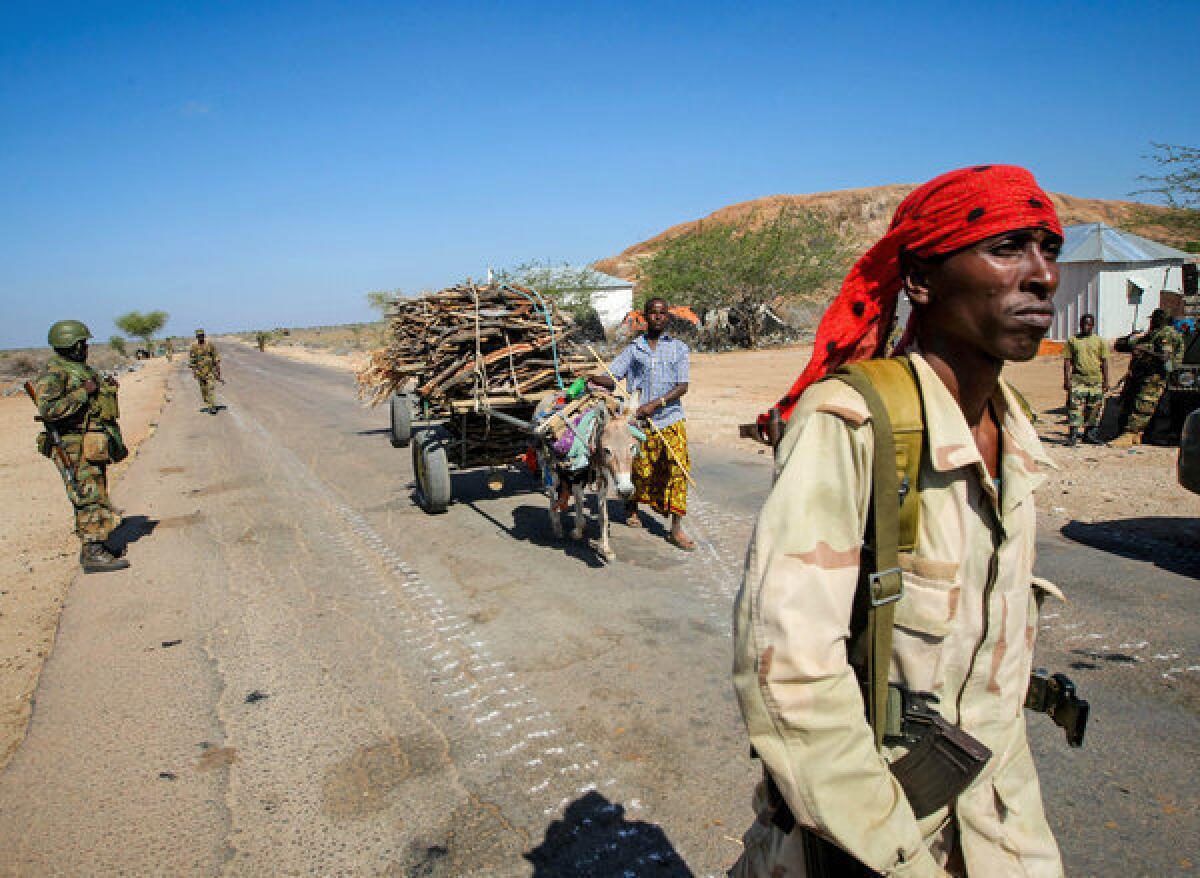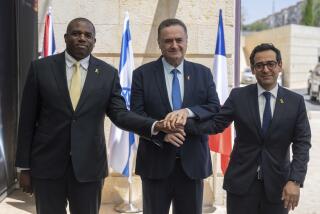U.N. Security Council loosens arms embargo on Somalia

- Share via
An arms embargo on Somalia will be eased for a year, allowing the country’s new government to buy some weapons to battle religious extremists, the U.N. Security Council said Wednesday.
The Security Council resolution adopted Wednesday maintains the ban on surface-to-air missiles, higher-caliber guns, howitzers and mortars, anti-tank weapons and other heavy firepower, but allows other arms to be sold to Somali security forces. It bars those arms from being resold to anyone else.
The Somali government is also required to inform a U.N. committee before any weapons or military equipment are delivered and provide details about the shipments. If the loosened rules are abused new sanctions could be imposed on the culprits, officials said.
The decision was meant to strike a middle ground between calls from the Somali government, which wants to eliminate restrictions, and the warnings of human rights activists, who say the weapons could fuel abuses and end up in the hands of militants.
“What we have tried to do is draw a balance,” said Mark Lyall Grant, British ambassador to the United Nations, calling it “a good and strong compromise.”
Amnesty International had warned before the vote it was premature to allow more weapons into Somalia and that doing so could “expose Somali civilians to even greater risk and worsen the humanitarian situation,” the group’s Somalia researcher, Gemma Davies, said in a statement this week.
Newly allowed weapons could fall into the hands of militants or be used to perpetrate abuses by the security forces themselves, which still need reforms to hold members accountable for reports of human rights violations and mistreatment, the rights group said Wednesday.
“We had hoped to see more measures put in place before the embargo was lifted or loosened,” said Adotei Akwei, head of the government relations unit at Amnesty International USA. Now, “we hope the Security Council monitors this as tightly as possible.”
Weapons have leaked into Somalia despite the longstanding embargo, first imposed by the U.N. in 1992 to try to reduce the bloodshed among the country’s warring factions. A new government was elected last year in the first vote since 1991, bringing a new measure of stability to the nation.
Somali leaders said lifting the arms embargo would help the government tackle Shabab, an Al Qaeda-linked militant group believed to have carried out killings and suicide bombings. The Heritage Institute for Policy Studies, a Mogadishu think tank, argued that ending the embargo would give the government “a qualitative monopoly on the instruments of legitimate violence.”
U.S. Ambassador to the U.N. Susan Rice praised the decision as “a clear signal of support to the new Somali government” that would “ensure responsible development of the security sector.”
Some weren’t convinced that Somalia was ready. “The Security Council should have adopted a phased approach to prevent the possible repercussions of an abrupt suspension of the embargo which could subsequently compromise the stabilization efforts,” Guatemalan Ambassador to the U.N. Gert Rosenthal told the council after the vote, according to Reuters.
Grant told reporters the loosened rules were an important step toward supporting Somali sovereignty. “No one is suggesting that there are no more challenges in Somalia,” he said, responding to a question about the recent jailing of a journalist.
But with the decision, the U.N. is “moving away from international trusteeship … toward supporting the government’s efforts to address its own problems,” he said.
The Wednesday vote also renewed an African Union peacekeeping force for another year.
ALSO:
American bid for more openness at Vatican is quashed
Iran declares national day of mourning for Hugo Chavez
Egyptian judge suspends upcoming elections as disarray deepens
More to Read
Sign up for Essential California
The most important California stories and recommendations in your inbox every morning.
You may occasionally receive promotional content from the Los Angeles Times.













